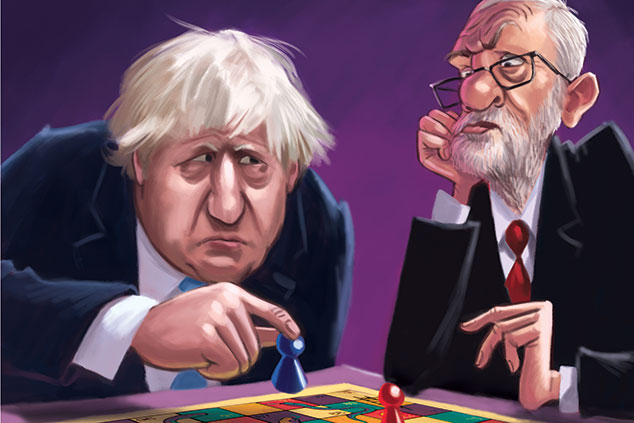
The UK’s turbulent political situation presents a dilemma for investors. British assets look cheap, but what happens if we get an extreme outcome? John Stepek looks at how bad things could get.
By the time you read this sentence, the chances are the political situation in the UK will have undergone several new last-minute reversals, generating acres of newsprint and screen rants in the process. In this week’s magazine we give a summary of the story so far, and Helen Thomas of Blonde Money tries to cut through the noise to the fundamental narrative. Yet if the last few weeks have made anything clear, it’s that no one can be certain of anything.
Of course, any sensible long-term investor already knows that. You can’t time the market. Instead, you have to focus on ensuring your portfolio (and your lifestyle generally) can withstand whatever the world is likely to throw at it. The goal is not to predict the future – it’s to be prepared for it when it comes. As Thomas argues, there’s a good chance that the future for those of us based in Britain contains either a “no-deal” Brexit, or a Jeremy Corbyn government (or – less likely perhaps, but still possible – both). So what’s likely to happen in each case?
A Jeremy Corbyn government
“Why should democracy end when you walk into work? Why should the place where you spend most of your day sometimes feel like a dictatorship?” That was Labour leader Jeremy Corbyn speaking to the Trades Union Congress earlier this week about his plans to reverse the “deliberate, decades-long transfer of power from working people”, with the creation of a new government “Worker Protection Agency” alongside the repeal of various bits of legislation restricting the power of unions to strike without the clear support of a majority of their members.
Now, you may well agree with MoneyWeek that egregious executive pay needs to be tackled (it’s an issue we’ve been banging on about for years now, as regular readers will know). You may also think that real wage growth has been inadequate, and that the share of the pie going to capital rather than to labour is unsustainable (we do). However, these are not the words of a man who believes that private enterprise has much of a positive role to play in the economy – and the policies of any Labour government led by Corbyn would very much reflect this view.
In this light, Citigroup and Deutsche Bank, just two of the global investment banks who are trying to make peace with the idea of a Corbyn government – seeing it as a better bet than a no-deal Brexit – appear to be suffering a failure of imagination. No-deal Brexit might seem like an extreme outcome to multinationals who have grown used to working with a supranational organisation that is very good at protecting big companies from new competitors, but Corbyn and Labour’s shadow chancellor, John McDonnell, have laid out a set of plans that are by any objective standard highly radical compared with the economic approach that Britain has grown used to over the past 35 years or so. As economist Julian Jessop puts it in The Daily Telegraph, “Labour is planning to tear up the rules of a liberal, free market economy”.
Subscribers can read it in the digital edition or app